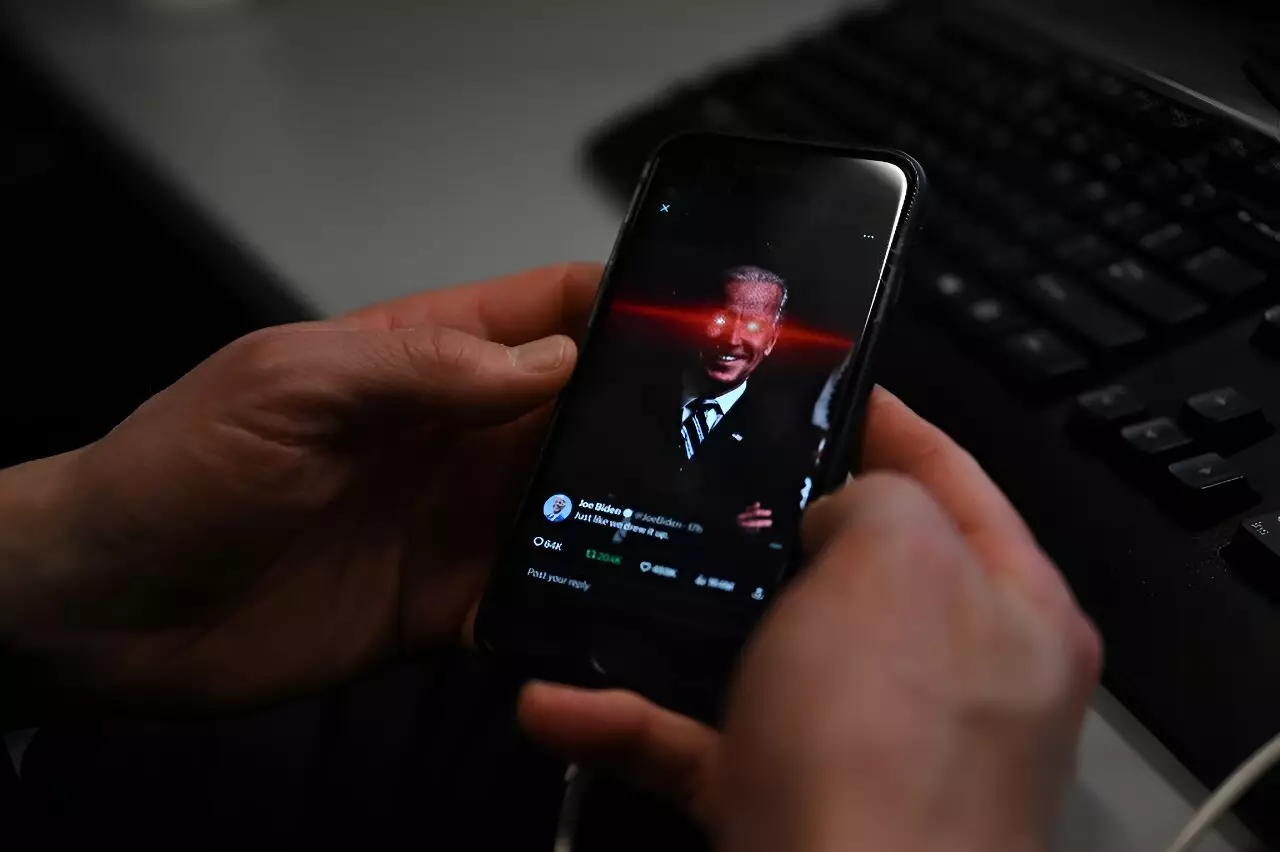The world of politics has entered a new era as technology continues to shape how politicians connect with voters. US President Joe Biden’s recent debut on TikTok has garnered both attention and criticism, as the Chinese-owned social media platform remains a security concern for the US government. Despite its ban on federal government devices due to fears of data harvesting by Beijing, Biden’s reelection campaign saw potential in reaching younger voters through this popular app. However, Republicans wasted no time in condemning Biden’s use of TikTok and raising concerns about national security.
Even the White House itself acknowledged the ongoing concerns surrounding TikTok. The National Security Council expressed its reservations about the app, stating that national security concerns persisted on government devices. While the White House refrained from commenting on campaign matters directly, it emphasized its awareness of the broader issue of platforms like TikTok spreading disinformation. This highlights the growing recognition that social media platforms can have significant influence, especially among younger demographics, and raises questions about the integrity of electoral processes.
Accusations and Denials
TikTok’s ownership by the Chinese firm ByteDance has led to accusations by numerous US politicians that the platform serves as a propaganda tool for Beijing. However, the company vehemently denies these allegations, underscoring the ongoing tensions between the US and China. Despite these concerns, the Biden campaign made a strategic decision to embrace TikTok as a means of engaging with younger voters and potentially countering speculation about the President’s age – a topic that gained traction after a recent special counsel report characterized Biden as an “elderly man with a poor memory.”
“lol hey guys”: Biden’s TikTok Strategy
The video that marked Biden’s TikTok debut, titled “lol hey guys,” showcased the campaign’s lighthearted approach to various topics, including politics and the NFL championship game. In response to a right-wing conspiracy theory suggesting that the game was rigged for pop star Taylor Swift to endorse Biden, the President jokingly evades the question with a playful remark. The video also features the popular “Dark Brandon” meme, an image of Biden with red eyes and a mischievous grin, which Democrats have used to symbolize his perceived superpowers. The video gained immense traction, amassing over 5 million views, emphasizing the campaign’s success in utilizing new media platforms to connect with voters.
Biden’s reliance on TikTok and other social media platforms has led to a decrease in traditional press conferences compared to his predecessors. The President’s numbers pale in comparison to former President Barack Obama, who held 66 press conferences in his first three years, and former President Donald Trump, who held 52 during the same period. This shift reflects a changing political landscape, with politicians increasingly turning to social media as a more direct and immediate way to engage with the public. However, it also raises concerns about the accessibility and transparency of the President’s communications.
Joe Biden’s TikTok debut has ignited a mixture of enthusiasm and criticism, highlighting the complexities of modern political campaigns. While the concerns surrounding TikTok as a security risk persist, the Biden campaign recognized the potential of this vibrant platform in reaching younger voters. By embracing TikTok, the campaign aimed to dispel doubts about the President’s age and showcase a new age of politics through creative and engaging content. As technology continues to shape the political landscape, politicians must navigate the opportunities and challenges presented by emerging platforms to effectively connect with voters and shape public opinion.


Leave a Reply